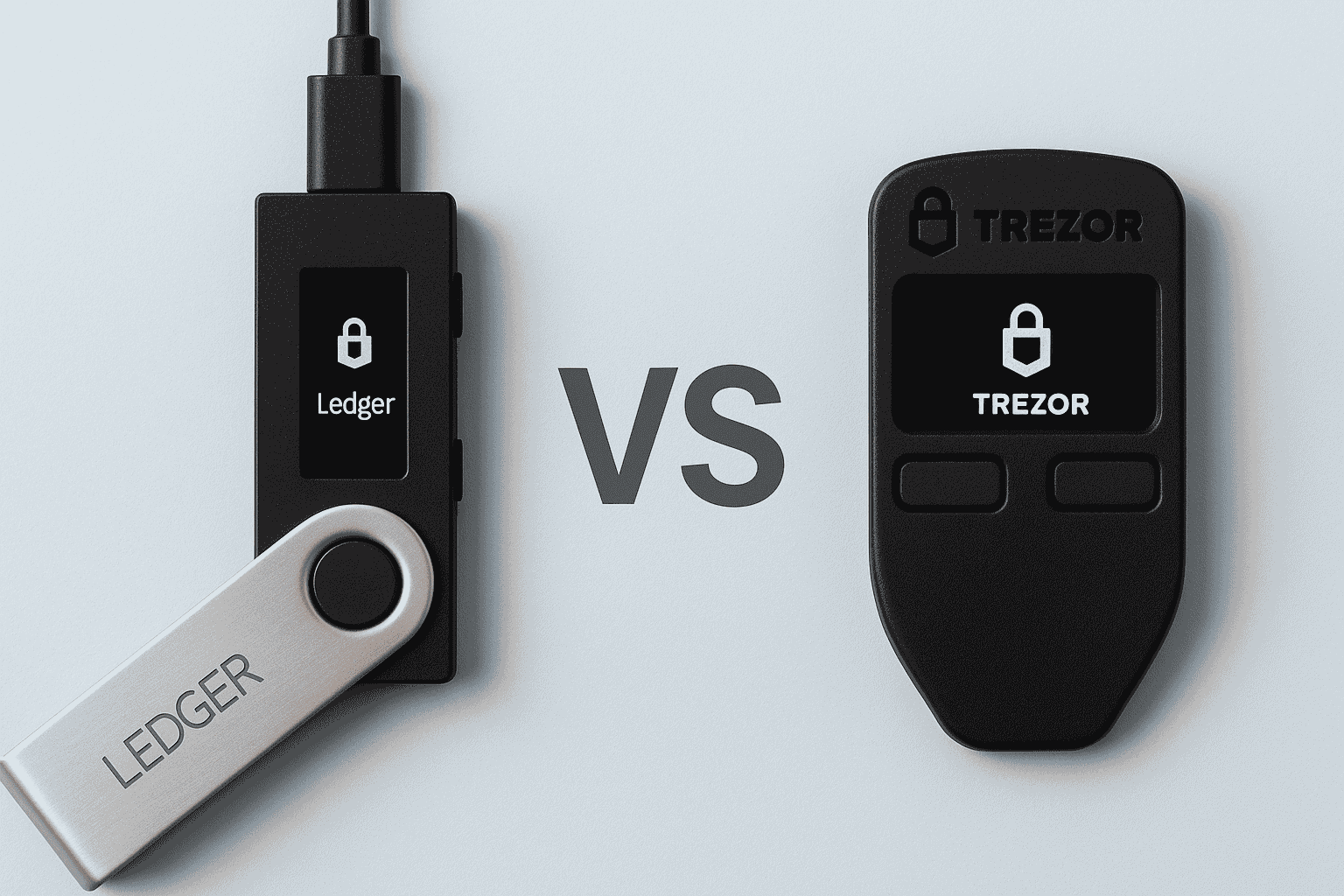Previous Post
The Ultimate Guide to Securing Your Recovery Seed Phrase

The hardware wallet market remains dominated by two industry giants: Ledger and Trezor. Both companies have established comprehensive ecosystems around their security devices, but each takes distinctly different approaches to protecting your cryptocurrency assets. Understanding these differences is crucial for making the right choice for your specific needs and security requirements.
As we navigate through 2025, both Ledger and Trezor have evolved their product lines, security models, and ecosystem offerings. This comprehensive comparison examines every aspect of these hardware wallet ecosystems to help you determine which solution aligns best with your cryptocurrency storage and management requirements.
The fundamental difference between Ledger and Trezor lies in their security architecture approaches. These design philosophies influence everything from device setup to long-term security maintenance.
Ledger devices utilize a certified Common Criteria EAL5+ secure element chip, the same type used in credit cards and passports. This hardware-based security provides several advantages:
The secure element creates an isolated environment where private keys never leave the protected chip, even during transaction signing. This architecture makes physical key extraction extremely difficult, requiring expensive laboratory equipment and specialized expertise.
Trezor takes a transparent, open-source approach to security, building their devices around general-purpose microcontrollers with software-based security measures:
The open-source model allows security researchers worldwide to examine and improve Trezor's security implementations. However, this approach relies more heavily on software protections rather than specialized security hardware.
Both security models have been tested in real-world scenarios. While Trezor devices have demonstrated vulnerabilities to sophisticated physical attacks, Ledger has faced criticism over closed-source implementations and past data breaches affecting customer information.
Each manufacturer offers multiple device options targeting different user segments, from basic crypto holders to institutional clients with complex security requirements.
Ledger's current lineup focuses on user convenience while maintaining security standards. The Nano X includes Bluetooth connectivity for mobile use, while the Nano S Plus provides essential features at a lower price point.
Key Ledger advantages include:
Trezor devices prioritize user interface quality and open-source transparency. The Model T's color touchscreen provides superior user experience, while the Model One offers essential security at an accessible price.
Key Trezor advantages include:
Both ecosystems support thousands of cryptocurrencies, but their approaches to adding new assets differ significantly. Understanding these differences helps predict future support for emerging cryptocurrencies.
Ledger maintains strict standards for cryptocurrency integration, requiring comprehensive security audits before adding support for new assets. This results in:
Trezor's open-source nature allows for broader cryptocurrency support through third-party wallet integrations:
Both devices support all major cryptocurrencies including Bitcoin, Ethereum, and popular altcoins. The choice between them should prioritize security model preference over specific cryptocurrency support unless you hold very niche assets.
The software experience significantly impacts daily cryptocurrency management. Each company has developed comprehensive software solutions with different philosophies and capabilities.
Ledger Live provides a comprehensive, all-in-one solution for cryptocurrency management:
Ledger Live's integrated approach means users can manage most cryptocurrency activities without leaving the application, providing convenience at the cost of some flexibility.
Trezor Suite emphasizes privacy and security while providing essential management features:
Trezor Suite focuses on core wallet functionality while allowing users to choose specialized third-party applications for advanced features.
Both companies have faced security challenges that illuminate the strengths and weaknesses of their respective approaches to hardware wallet security.
Ledger has demonstrated strong device security but faced challenges with customer data protection:
Trezor devices have shown vulnerabilities to sophisticated physical attacks while maintaining strong overall security:
Physical attacks on both devices require specialized equipment and expertise that put them beyond the capabilities of typical criminals. The greatest security risks for most users come from phishing, social engineering, and improper seed phrase management.
Hardware wallet pricing reflects not just the device cost but the long-term value of ecosystem features and ongoing security updates.
Choosing between Ledger and Trezor depends on your specific priorities, technical expertise, and intended use cases for cryptocurrency storage.
Both Ledger and Trezor offer excellent security for cryptocurrency storage. Ledger excels in physical security and user convenience, while Trezor leads in transparency and user interface design. Your choice should align with your personal values regarding open-source software, preferred user experience, and specific feature requirements. Most importantly, either choice provides significantly better security than software-only wallet solutions.
As the cryptocurrency ecosystem continues evolving, both companies are adapting their strategies to meet emerging user needs and security challenges.
Ledger is focusing on ecosystem integration, expanding their DeFi capabilities, and developing enterprise solutions. Their roadmap includes enhanced mobile experiences and broader institutional service offerings.
Trezor continues emphasizing security transparency and user privacy, with upcoming improvements to their hardware designs and expanded support for emerging blockchain technologies through community contributions.
Regardless of which ecosystem you choose, remember that the security of your cryptocurrency ultimately depends on proper seed phrase management, regular software updates, and following established security best practices. Both Ledger and Trezor provide excellent foundations for secure cryptocurrency storage when used correctly.
Consider purchasing directly from manufacturers to ensure authentic devices and take advantage of warranty protection. Both companies offer excellent customer support and comprehensive documentation to help users maximize their device security.